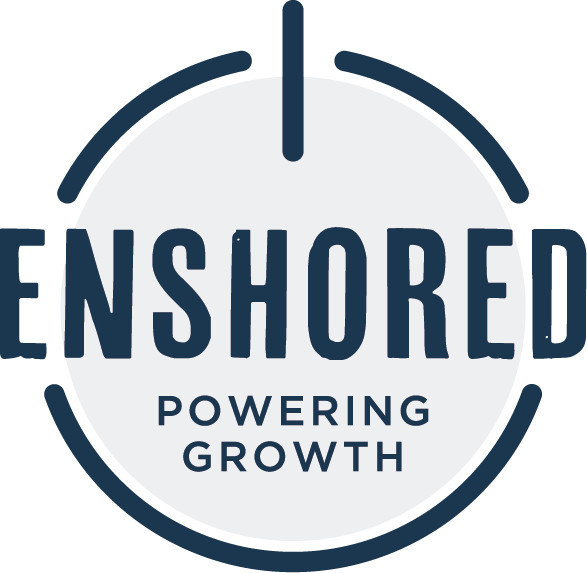Taking too long? Close loading screen.


In an era where customer satisfaction can make or break a business, customer experience outsourcing has emerged as a strategic move for many companies looking to enhance their customer service. This practice is not just a trend; it’s a reflection of the evolving business environment where agility and expertise are paramount. By partnering with specialized service providers, businesses are finding new ways to elevate the quality of their customer interactions and focus on their core competencies.
Outsourcing customer experience is more than just delegating tasks; it’s about creating a partnership that extends the capabilities of your business to meet and exceed customer expectations. It involves a meticulous process of selecting the right partner, designing collaborative workflows, and ensuring that the outsourced team embodies the company’s values and service standards.
To ensure enhancing customer service through outsourcing is effective, companies must first define clear customer experience goals. These objectives should be measurable, attainable, and aligned with the overall business strategy. Whether it’s reducing response times, increasing customer satisfaction scores, or enhancing the quality of support interactions, having well-defined goals will guide the selection of an outsourcing partner who can deliver the desired outcomes.
Choosing the right partner is crucial for the success of outsourcing initiatives. Establish criteria that address expertise, technology, cultural fit, and track record. A potential outsourcing partner should not only have the capability to provide exceptional service but also a robust infrastructure to handle your company’s specific needs. Look for partners who are willing to invest in understanding your brand and can demonstrate a commitment to maintaining high-quality standards.
Aligned values with service providers ensure that every customer interaction reflects your brand’s spirit. It’s imperative that the outsourced service provider trains its agents to understand your company’s mission, voice, and values. This alignment will result in more authentic interactions with customers and help maintain brand integrity, which is essential for fostering long-term customer relationships.
Successful outsourcing requires seamless integration of external teams into your existing business model. This means establishing clear communication channels, setting up shared management tools, and ensuring that both your in-house and outsourced teams are working towards the same service benchmarks. Ensuring consistency in outsourced customer support is key to a unified customer experience that feels both personal and professional to the end user.
When you outsource, it’s vital to ensure that the customer’s journey remains front and center. This means working closely with your outsourced team to map out each touchpoint a customer has with your service. From first contact to ongoing support, each step should be carefully crafted to ensure it meets your standards. Effective design of customer journeys with outsourced teams requires regular review to adapt to customer feedback and changing needs.
Training for outsourced customer support agents is not a one-time event but an ongoing process. A robust training program equips agents with not only the necessary product knowledge but also with your company’s customer service values. The training should be comprehensive, including role-playing scenarios, product updates, and soft skills enhancement to ensure they can provide service that rivals or exceeds in-house teams.
Communication in customer service outsourcing is pivotal. Customized communication protocols help in maintaining a uniform voice across all channels, whether it’s email, phone, or chat. These protocols should cover language, tone, and response templates. Regular updates to these protocols help keep the outsourced team updated on any changes in company messaging or customer service policies, ensuring consistency in every interaction.
Technology can significantly amplify the effectiveness of outsourced customer service. Implementing state-of-the-art customer relationship management (CRM) systems, chatbots, and AI-driven analytics tools can help in delivering a seamless and personalized customer experience. By leveraging technology, companies can ensure that customer satisfaction via outsourced interactions remains high, and the insights gained from these technologies can lead to continuous improvement in service delivery.
To manage outsourced operations effectively, establishing robust feedback loops in customer service outsourcing is essential. This involves creating channels for customers to provide feedback directly to the outsourced team and ensuring that this feedback is analyzed and used for continuous improvement. Service metrics should be identified and monitored regularly to measure performance against agreed standards, ensuring that the customer experience remains a priority.
Continuous oversight is vital to ensure the quality of outsourced customer service. Regular monitoring allows for timely identification of issues, while periodic evaluation of outsourced services helps determine if the collaboration meets the set objectives. This process includes assessing key performance indicators, customer satisfaction scores, and service level agreements to ensure the partnership delivers value to the business and its customers.
Quality assurance in outsourcing practices is a non-negotiable aspect of maintaining high service standards. It involves systematic processes to check and improve the services provided by the outsourcing partner. This might include random sampling of customer interactions, regular audits, and the implementation of corrective actions where necessary to maintain the expected level of service quality.
Outsourcing customer service operations comes with its set of challenges, from cultural differences to time zone issues. Proactive identification and resolution of these challenges are crucial. It requires a commitment to iterating processes and finding solutions that work for all parties involved. This adaptability ensures that outsourced customer service remains a dynamic and efficient component of your business.
The key to maintaining brand loyalty through outsourcing lies in upholding high satisfaction standards in every customer interaction. It’s not just about resolving issues; it’s about doing so in a way that reflects the brand’s commitment to its customers. This means setting high benchmarks for quality and regularly assessing if these benchmarks are met by the outsourced team through customer satisfaction surveys, net promoter scores (NPS), and other relevant metrics.
Building a strong and enduring relationship with your outsourcing service providers is essential for long-term success. It involves more than just contractual obligations; it’s about fostering a collaborative culture where open communication, mutual respect, and shared goals are at the forefront. Encouraging the service provider’s agents to feel like an extension of the in-house team helps ensure consistency in outsourced customer support.
Developing strategies for long-term relationship building involves regular engagement and alignment with the outsourced teams. This can be achieved through joint training sessions, shared company events, and incentive programs that align with those of internal staff. By treating outsourced agents as true partners, businesses can cultivate a dedicated team that is invested in the brand’s success, thereby enhancing the overall customer experience outsourcing.
Outsourcing partners can be a source of innovation for customer experience strategies. They often bring a fresh perspective and can suggest improvements based on their experience with multiple clients and industries. Utilizing their insights can lead to creative solutions for enhancing customer engagement, developing new communication channels, or optimizing existing processes. A forward-thinking approach to outsourcing can thus contribute significantly to a brand’s ability to innovate in customer service.
A critical component of any outsourcing strategy is the evaluation of customer satisfaction via outsourced interactions. This isn’t just about measuring if the customers are happy; it’s about understanding the depth of their satisfaction and the areas where the service could be improved. Utilizing comprehensive feedback systems that include surveys, direct feedback, and social listening can provide a holistic view of customer sentiment. Analyzing this data allows businesses to make informed decisions about where to focus improvement efforts.
The market is dynamic, and customer needs evolve rapidly. As said before, an effective outsourced customer service operation must be agile, and ready to adapt to new trends and customer expectations. This means staying up-to-date on market developments and being ready to adjust service offerings accordingly. It could involve training agents on new products, updating communication protocols, or implementing new technology to meet changing customer behavior.
The principle of continuous improvement is integral to quality assurance in outsourcing practices. It’s about establishing a cycle of feedback, evaluation, and refinement to ensure that the services provided remain top-notch. This cycle involves regular performance reviews, benchmarking against industry standards, and investing in ongoing training and development for the outsourced team. The goal is to create a culture of excellence that permeates every level of the customer service operation.
As businesses grow, their customer service needs will evolve, and the scale of outsourced services may need to expand. Scaling requires a careful balance between increasing the volume of support and maintaining quality. Planning for growth involves ensuring that the outsourcing partner has the capacity to grow with the business and that they have robust training programs in place to bring new agents up to speed without diluting the quality of service.
The landscape of customer service outsourcing is ever-changing, shaped by technological advancements, evolving customer expectations, and the global economic climate. Companies that want to stay ahead must not only adapt to these changes but also anticipate them. This could mean embracing new communication platforms, exploring artificial intelligence and machine learning to personalize customer interactions, or adopting a more flexible outsourcing model that can scale with the business.
The future of outsourcing is not just about cutting costs or managing workload—it’s about strategic partnerships that drive innovation in customer experience. As we look ahead, the integration of outsourced services into a company’s customer experience strategy will become even more nuanced, with a greater emphasis on creating seamless, authentic, and delightful customer journeys. Businesses that understand and implement these principles will not only thrive in terms of customer satisfaction but will also see tangible growth in brand loyalty and reputation.
Anticipating growth?
Access the tools, tech & team you need to scale globally.

Serious about scaling?
One call is all it takes to know if we’re a fit.
© 2024 Enshored · Privacy · GDPR · California · Cookies · Marketing by Klicker